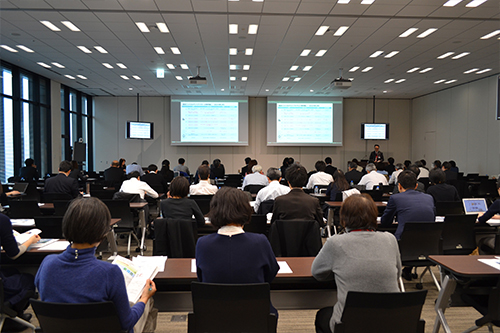Taking Action on Global Warming Issues
- The CDM is a carbon credit (CER) creation scheme designed to support the sustainable development of developing countries and help developed countries achieve their targets for reducing CO2 emissions. Under the CDM, developed countries provide support to developing countries through transfer of technology and finance to help them achieve reductions in CO2 emissions. Once achieved, the emissions reduction is certified by the U.N., and it subsequently issues carbon credits to the countries and/or entities that offered their support.
- The JCM is a bilateral credit creation scheme between Japan and developing countries proposed by the Japanese government to the international community as a new mechanism to complement the CDM. Benefits of the JCM include mutual implementation of projects by Japan and any country that signed a bilateral document, a broader range of applicable projects compared to the CDM, shorter processing times, and the availability of Japanese government subsidies.
How JCM Works

Supporting Projects to Reduce Greenhouse Gases
in Developing Countries under the JCM
Promotion of Green Hospitals through the Improvement of the Energy-Efficiency and Environment at National Hospitals in Vietnam
This project was selected by the New Energy and Industrial Technology Development Organization (NEDO) as a JCM Demonstration Project.
The Securities Business is responsible for the development of measurement, reporting, and verification (MRV) methodology for GHG emissions reduction from the project and the preparation of the project design documents (PDD). The project has been officially registered and approved as a JCM project by the governments of Japan and Vietnam.
Through the daily operation of this project, GHG emissions reduction is continuously achieved. This, in turn, contributed to Japan's targets for GHG emissions reduction. In addition, the project was well received by the Vietnamese government for helping to improve the air quality in the hospitals.
Demonstration Project for an Energy-Saving Data Center in Laos
Rapid expansion in information technology fields is expected in Laos going forward. By introducing Japanese energy-saving standards from an early stage, this project is anticipated to contribute to the sustainable development of Laos. Preliminary calculations have determined that the promotion of this project will result in GHG emissions by 130,000 t-CO2 between 2016 and 2026.
The container-based data center introduced in this project realizes a layout that minimizes the distance between connecting components. Through various other innovations such as controlling the air conditioning load by making use of the natural environment and modifying the distributing system, energy consumption can be reduced by nearly 40%. In addition, through cooperation with the Ministry of Science and Technology of Laos, we are improving the country's national cyber security and meeting the needs of private financial institutions by enabling a secure and stable computer network supply.
Also, in November 2016, construction of Laos's first-ever government-run, eco-friendly data center was completed, with the Ministry of Science and Technology commencing operations of the center in February 2017.
Moreover, in January 2019, Laos issued its first JCM credits (207 tons).
Project Regarding the Introduction of Highly Efficiency Street Lighting Utilizing Wireless Network in Cambodia
This project has been developed in cooperation with Minebea Co., Ltd. and four partner institutions in Cambodia. The project was selected by the Ministry of Environment of Japan as a JCM Model Project in June 2015.
The project involves installation of 9,755 high-efficiency LED street lights in the Cambodian cities of Phnom Penh and Siem Reap. Compared with conventional HID(note) street lights, the project will significantly reduce energy consumption and GHG emissions. In addition, with a lighting control system offered via wireless networks, the project will generate further energy-saving effects.
Mitsubishi UFJ Morgan Stanley Securities (the Securities Business) contributes to the smooth implementation of this project by developing MRV methodology for measuring, reporting and verifying reductions in GHG emissions and supporting the project's registration under the JCM. The project was registered as a JCM undertaking in February 2020.
- HID is an abbreviation for conventional high-intensity discharge lamps. HID lamps include metal-halide lamps and high-pressure sodium lamps.
Holding Events on Climate Change Adaptation in Japan and Overseas
- Adaptation refers to preparations to prevent and reduce the impact of climate change that is already occurring. These preparations include measures such as drought management, the development of new agricultural species, and the establishment of infrastructure for early-warning on the occurrence of heat stroke. Together with controlling carbon dioxide (CO2) emission, it is an important pillar of global warming countermeasures.




